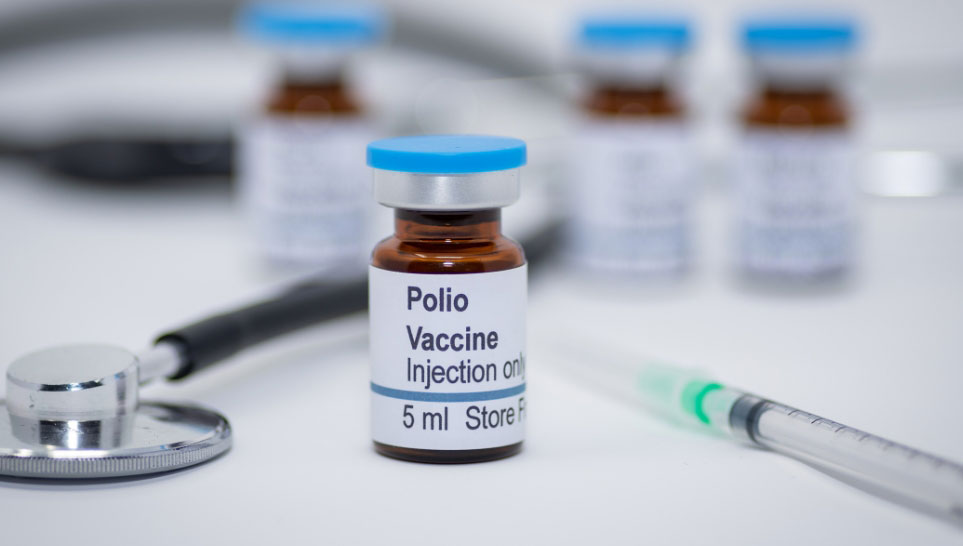
CIDP is a neurological injury that causes numbness, tingling, pain, and weakness. These symptoms occur because the body attacks the nerves that connect the hands, feet, legs, and arms to the brain. CIDP is often thought of as “chronic GBS”, GBS is another neurological injury related to vaccines, however, CIDP is a different disorder. The two most common injuries related to vaccines are (1) shoulder injuries and (2) neurological injuries like CIDP.
The link between vaccines and nerve damage was made clear during the 1976 swine flu pandemic. To combat the spread of swine flu, a nationwide immunization program was put into place. During that period, reports of cases of Guillain-Barre Syndrome (GBS) increased. Even though the cases linked to the flu vaccine were returned to normal, it was still concerning.
There is a medical science that supports the link between vaccines, especially the flu shot, and Chronic Inflammatory Demyelinating Polyneuropathy (CIDP).
CIDP is a disorder of the peripheral nervous system.
The peripheral nervous system (PNS) consists of the nerves and ganglia outside of the brain and spinal cord. The PNS is divided into the somatic nervous system, which controls the body’s skeletal muscles, and the autonomic nervous system, which regulates the body’s internal organs.
What is Chronic Inflammatory Demyelinating Polyneuropathy (CIDP)?
Chronic Inflammatory Demyelinating Polyneuropathy (CIDP) is a rare neurological disorder where the protective covering of nerves (myelin sheath) is attacked and damaged by the immune system (autoimmune disorder). The nerves that are attacked in CIDP are generally those in the arms, hands, legs, and feet a/k/a the peripheral nerves.
The myelin acts like insulation to a wire. If you damage the insulation surrounding a wire, then electricity has trouble running through that wire. Damage to the myelin affects how fast the nerve signals are sent to other organs. A lower transmission of nerve signals leads to nerve fiber loss. CIDP causes slow motor function in the legs and arms, paralysis, and weakness. Having problems with the ability to feel (sensory disturbance) is another symptom of CIDP.
CIDP is closely related to Guillain-Barre Syndrome (GBS). There are two key differences between GBS and CIDP. GBS has a rapid onset after vaccination, usually within 3 to 4 weeks and the symptoms get worse fast, but the condition often resolves. The onset of CIDP occurs about 3 to 4 weeks also, but the condition develops slower than GBS and is often chronic. The second big difference is that CIDP usually begins with weakness, whereas GBS starts with numbness and tingling.
What are the symptoms of CIDP?
The symptoms of CIDP are very similar to those seen in other types of inflammatory neuropathies such as Guillain-Barré syndrome (GBS). The most common symptom is a progressive weakness which starts in the extremities and spreads towards the trunk. Other symptoms include numbness, tingling, pain, and changes in sensation. In some cases, involvement of the autonomic nervous system can lead to problems with blood pressure and heart rate.
CIDP typically progresses slowly for weeks or months, but it can also occur suddenly (acute onset). As a slowly developing autoimmune disorder, people with CIDP usually start having trouble walking. Since CIDP is characterized by progressive weakness there could be a loss of muscle tissue that comes with numbness and tingling in the extremities.
Most people with CIDP will eventually recover from their symptoms, but some may have residual deficits.
Vaccine CIDP
CIDP caused by vaccination is an autoimmune disease. Symptoms of vaccine-caused CIDP usually start 3 to 4 weeks after vaccination. The symptoms of Chronic Inflammatory Demyelinating Polyneuropathy progress slowly. It starts with weakness in the hip muscles, shoulders, and/or feet. It also impacts the nerve signals, causing impairment in motor function. There are other symptoms, such as tingling, numbness, and a lack of coordination. Some patients experience loss of sensation while their muscle strength remains normal. Others experience both nerve and sensory impairment.
What is Acute Inflammatory Demyelinating Polyneuropathy?
Acute Inflammatory Demyelinating Polyneuropathy (AIDP) is an autoimmune disorder that affects the nervous system. AIDP is the most common form of GBS. The immune system attacks the myelin sheath, which is the protective covering that surrounds nerve cells. This damages the nerves and causes inflammation. AIDP is also known as acute demyelinating encephalomyelitis (ADEM) or post-infectious encephalomyelitis.
What is the difference between AIDP and Chronic Inflammatory Demyelinating Polyneuropathy?
Both AIDP and CIDP damage the myelin sheath, but AIDP is acute, meaning it comes on suddenly and lasts for a short time. CIDP is a chronic condition that develops over time and can last for months or years.
Flu vaccine and Chronic Inflammatory Demyelinating Polyneuropathy
Every flu shot contains certain proteins that, in some people, can trigger the development of CIDP. While the reaction is rare, it does happen, and developing a condition like chronic inflammatory demyelinating polyneuropathy is scary for both the victims and their families.
There are peer-reviewed case studies in the scientific literature linking CIDP to the influenza vaccine The general idea is that if the actual influenza virus can cause CIDP, those very same proteins contained in the vaccine can also trigger the condition.
CIDP is a rare disease that can affect any person of any age group. The average age of onset is 50. The disorder affects males twice as often as females. Flu vaccination is recommended for older generations, and thus there are more cases of CIDP linked to vaccination among the elderly.
One study reveals the history of a 74-year-old man who had no previous neurological disorders but who started showing symptoms of CIDP two days after receiving the flu shot. Another study tells the story of a 78-year-old male whose doctors discovered GBS in his childhood. The signs were triggered by his flu vaccination, which further developed into CIDP disorder.
We determined the frequency of recurrent Guillain-Barré syndrome (GBS), whether vaccinations led to recurrences of GBS or an increase of disability in chronic inflammatory demyelinating polyradiculoneuropathy (CIDP) and we assessed the prevalence of pain, fatigue, and the impact on quality of life after GBS and CIDP. Additionally, we assessed the presence of common autoimmune disorders. Four hundred and sixty-one members of the Dutch society of neuromuscular disorders received a questionnaire. Two hundred and forty-five GBS and seventy-six CIDP patients were included (response rate 70%). Nine patients had a confirmed recurrent GBS, and two patients had experienced both GBS and CIDP. Common autoimmune diseases were reported in 9% of GBS and 5% of CIDP patients. None of the 106 GBS patients who received a flu vaccination (range 1-37 times, total of 775 vaccinations) reported a recurrence thereafter. Five out of twenty-four CIDP patients who received a flu vaccination (range 1-17 times) reported an increase in symptoms. Pain or severe fatigue was reported in about 70% of patients after the diagnosis of GBS (median 10 years) or after the onset of CIDP (median 6 years), and quality of life was significantly reduced. Flu vaccinations seem relatively safe. GBS and CIDP patients often experience pain, fatigue, and reduced quality of life for many years after the diagnosis.
From: Recurrences, vaccinations and long-term symptoms in GBS and CIDP
How is Chronic Inflammatory Demyelinating Polyneuropathy diagnosed?
CIDP is usually diagnosed based on the symptoms and signs that are present, along with a neurological examination. In some cases, special tests may be ordered to rule out other conditions. These tests may include:
– electromyography (EMG)
– nerve conduction studies
– laboratory tests (e.g., complete blood count, erythrocyte sedimentation rate, immunoglobulin levels)
– cerebrospinal fluid analysis
– nerve biopsy
– skin biopsy
– MRI of the brain and/or spine
Because the symptoms of CIDP vary and slowly get worse over time, many people do not go to the doctor until the signs become severe.
How is CIDP treated?
Treatment of both CIDP and GBS usually begins with corticosteroids (prednisone) to regain lost strength and mobility. Treatment with intravenous immunoglobulin treatment or plasma exchange has been successful in treating both CIDP and GBS. Progressive symptoms could require physical therapy and additional treatments.
CIDP is often a chronic condition. Long-term treatment with steroids can cause mood changes and brittle bones.
What is plasma exchange treatment for CIDP?
Plasma exchange treatment is a process in which the blood plasma is removed from the patient’s body and replaced with either fresh frozen plasma or a saline solution. This treatment helps to remove the antibodies that are attacking the patient’s nervous system and can help to improve the symptoms of CIDP.
What is immunoglobulin therapy for CIDP?
Immunoglobulin therapy is a treatment in which the patient is given injections of immunoglobulin, which are proteins that help to boost the immune system. This therapy can help to improve the symptoms of CIDP.
What is corticosteroid therapy for CIDP?
Corticosteroid therapy is a treatment in which the patient is given steroids to help reduce inflammation. This therapy can help to improve the symptoms of CIDP.
FAQs
Besides the flu vaccine, which other vaccines are linked to GBS and CIDP?
GBS and CIDP are linked to these vaccinations:
Sadaka Law recovered over 2 million dollars for a nine-year-old boy who developed CIDP after receiving a Hepatitis A vaccine.
What are the long-term symptoms of Chronic Inflammatory Demyelinating Polyneuropathy?
While symptoms vary between vaccine-injured patients, those diagnosed with CIDP or GBS can experience severe symptoms, including paralysis, double vision, and chronic fatigue. Complications are also possible, including difficulty swallowing and respiratory failure. Due to symptoms worsening, some patients may require ongoing medical care. The financial burden, in this case, can be substantial.
What are the types of GBS?
GBS is an autoimmune disorder that attacks the peripheral nerves that could lead to permanent physical impairments. There are four types of GBS: acute inflammatory demyelinating polyneuropathy (AIDP), acute motor axonal neuropathy (AMAN), acute motor and sensory axonal neuropathy (AMSAN), and Miller Fisher syndrome (MFS). AIDP is the most common type, accounting for about 60% of all GBS cases. AMAN and AMSAN account for about 20-25% of all GBS cases, while MFS is relatively rare, making up only 5-10% of cases.
Learn more about GBS.
Can vaccine-injured patients seek financial compensation for GBS and CIDP?
Yes. Patients diagnosed with GBS and CIDP following vaccination are entitled to financial compensation under the National Vaccine Injury Compensation Program. The VICP pays compensation for CIDP and vaccines, including:
- Pain and suffering
- Medical expenses
- Rehabilitation and therapy expenses
- Loss of earnings
For patients diagnosed with CIDP or GBS, speaking with an experienced vaccine-injury lawyer is the first step toward compensation and financial recovery.
What should I do if I feel my CIDP is linked to a vaccine?
- Get help immediately. If you develop CIDP the very first thing you need to do is stabilize your condition.
- File a VAERS report. This video above shows how and why you need to report your injury to VAERS.
- Call us, we have extensive experience handling complex vaccine injury cases. In this particular field, experience matters. We are one of the very few firms are as experienced as Sadaka Law when it comes to vaccine injury cases.






